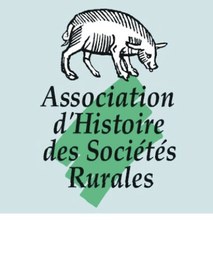RHN 164/2013 | Call
Organisers: Jean-Marc Moriceau and Philippe Madeline. With the participation of MRSH-Caen (USR CNRS 3486) - Centre de Recherche en Histoire Quantitative (UMR CNRS 6583) - ESO-Caen (UMR CNRS 6590)
8-10 October 2014, MRSH, Caen, France
Deadline: 15 January 2014
International conference
The «common people» of the land:
peasants, laborers and servants from the Neolithic to 2014 /
Les "petites gens" de la terre:
paysans, ouvriers et domestiques du Néolithique à 2014
Three 20th anniversaries:
Pôle rural (Pôle Sociétés et Espaces ruraux, Maison de la Recherche en Sciences Humaines, University of Caen Basse-Normandie, France)
AHSR (Association d’Histoire des sociétés rurales)
HSR (Journal Histoire et Sociétés Rurales)
General program for the conference
Social insecurity has always been a topic in human evolution. The poverty of the lower sort, or even of those at the margins of society, is constantly debated. It is frequently mentioned in connection with rural societies, which long remained the place of residence for most of the members of these vulnerable groups, and are still hosting a large number of them. But these are usually passing references. The focus has remained on more favored groups, while the «common people of the land», a group including, unevenly, small farmers, agricultural workers and plain farm servants are far from being known with the same degree of precision, and indeed far from attracting the same level of interest. From the Neolithic to 2014, though, they were the ones who carried out with their labor the development of our economies.
After twenty years of continuous activity, the Rural center (Pôle rural) of the Maison de la Recherche en Sciences Humaines, which hosts the international journal Histoire et Sociétés Rurales as well as the Association for the History of Rural Societies (Association d’Histoire des Sociétés rurales), has chosen to focus on the humblest over five continents, in order to assess their place and evolution in the past and today. Historians of every period, geographers of diverse traditions, archeologists, sociologists and ethnologists launch a joint invitation to all human sciences, and to the various actors of agriculture and regional development to meet for three days around this theme. Across the various academic boundaries of the historical field, already broken down by Histoire et Sociétés Rurales, and through the interdisciplinary miscegenation which Pôle rural has advocated since 1994, it is time now to confront the approaches and the results. In order to do so, the organizers have selected eight main axes: geographical and social mobility; demography and family structures; housing, living environments, and consumption; common people and the economy; girls and women on the land; children in the rural world; public and grassroots policies; small farmers, laborers, rural servants and the power centers.
- Types of presentation: oral presentations and/or posters. The scientific committee may steer a proposal toward one or the other form when examining it.
- A clear link of a presentation with the «common people» theme will be a key criterion in the selection process. Proposal concerning «the rural world» in general will not be considered.
- A presentation may be focusing on the core elements of a theme, or on its margins, at the intersection with other themes of the conference. They can also fall within two (or more) among the several axes suggested.
The conference covers the very long term, from the Neolithic to current issues. Still, the goal is to identify, and therefore define, periods for which the themes of a workshop are meaningful. It will be interesting to explore the extent to which one can go back in time and still capture social differentiation, considering both the available sources and the process whereby human communities became differentiated (could the specialists of the Neolithic possibly observe uses of living quarters specific to the elites and to the «common people»? At what date can one start to give an empirical answer to this question?), see theme n° 10. Communications can cover a specific period of any length, or rather try to identify evolution and continuities over the long term.
All spaces in which the ways of the life of the «common people of the land» can be observed are included in this conference. The communications can choose as their frames micro-regions as well as vast areas, nearby places or far-away locales. Comparative analyses are welcomed.
Call for papers
Preliminary program around 8 themes:
- Geographical and social mobility
- Demography and family structures
- Housing, living environments, consumption
- Common people and the economy
- Women and girls of the land
- Children in the rural world
- Public and grassroots policies
- Common people and the power centers
The scientific committee of the conference will examine all proposals for communications submitted as a declaration of intent, one page long, and meeting the following criteria :
- A short and explicit title + subtitle (2 lines maximum).
- Goals of the communication (or issues and prospects).
- Sources and methodology (or documentary / experimental basis).
- 5 keywords.
- Number of the theme within which the communication is meant to be included
- Last name, first name, professional position (with titulatures if needed), research unit and institution of affiliation, e-mail address.
- Presentation in a few paragraphs of no more than 3000 to 3500 signs, spaces included, in Times 11 font, in French (or the language the applicant will use in the communication).
- Deadline for submitting an application: 15 January 2014.
- To be sent to: blandine.parey@unicaen.fr, jean-marc.moriceau@unicaen.fr and philippe.madeline@unicaen.fr
The scientific committee will examine in the weeks following the deadline for submission all the proposals received, and may ask for some adjustments in the process of making its selection. Each proposal provider will then be informed of the committee's decision at the e-mail address given in the submission.
For a more detailed presentation of the themes, see www.histoire-et-societes-rurales.org
